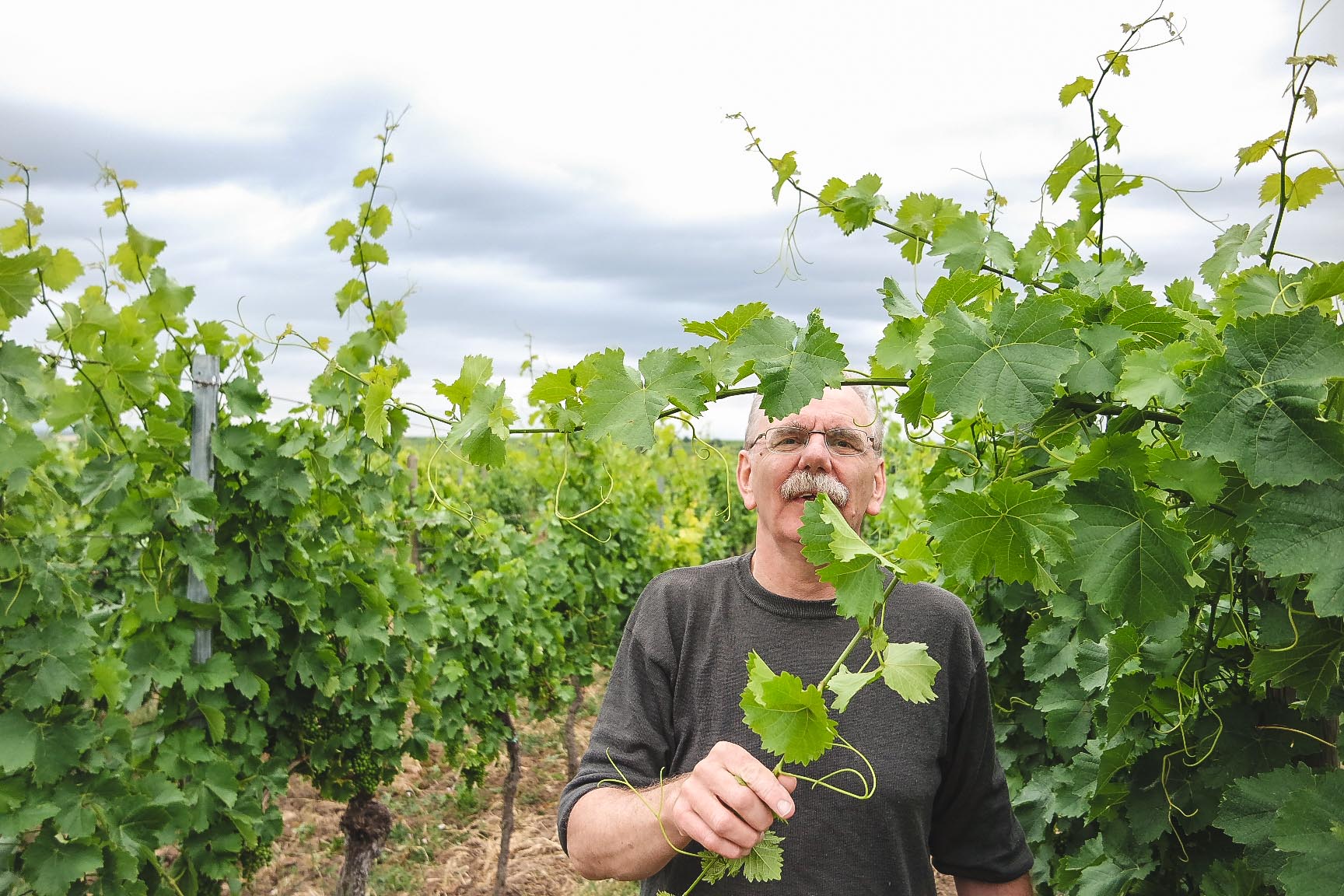But then his post-gymnasium travels took him to Australia a country with a new wine industry alive with infectious excitement, and he worked with Penfolds and Kaiser Stuhl. Upon his return to Germany and after his mandatory military service (“with the engineering division, blowing up bridges, that sort of thing”) he began his studies at Geisenheim. These studies culminated in 1982 with the completion of his thesis study of the effect of casein fining on the phenolic substances in wine. A formative experience was his participation in the 1980 wine harvest in the Pauillac region of Bordeaux with the Borie family of Chateau Grand Puy Lacoste and Chateau Ducru Beaucaillou. Here Rainer first gained direct experience with the uses of quality oak in winemaking. Here the seed was sown that grew into the intelligent use of oak in the élevage of Lingenfelder wines. In this regard, Rainer became a pioneer, one of the first producers to embrace small oak barrels as a legitimate augmentation to traditional Pfälzer techniques.
After stints with Kaiser Stuhl Wines in South Australia and Montana’s Gisborne winery in New Zealand, Rainer took on the challenging position of site engineer for the Egyptian Vineyard Company’s winery modernization project in Alexandria, Egypt. (“There was sand in everything!”). He next spent several years as Head of the Oenology Department at H. Sichel & Sons, the maker of Blue Nun.
Clearly, however, during this period Rainer also had a role on the family estate and in 1984 he was recognized on the basis of wines from Lingenfelder Estate as the first recipient of the Winemaker of the Year at the prestigious International Wine and Spirit Competition in London, England. This led to an invitation to visit Napa Valley as the guest of Robert Mondavi and later to an opportunity to study malo-lactic fermentations in white wines at Simi and other Californian wineries.
Then in 1988, Rainer brought his experience home – his experience in the New and Old World, experience with small and large wineries, and experience with barrique élevage and malo-lactic fermentation – home to ply his trade ´ full-time on the family estate. His experience away from home led to striking innovations: barrique élevage for Spä tburgunder and Dornfelder red wines (see OnYx and GanYmed), the occasional use of malo-lactic fermentation for white wines (other than Riesling!), and a world first, a Riesling-based, méthode classique sparkling wine without a grain of added sugar (see Satyr). His image as an innovator (a rebel?) was further enhanced by a well-publicized run-in with the German “wine police ” who objected to his spelling of Sylvaner with a “y”. (See Why the “Y”?.)
In 1990, Rainer assumed the reins at Lingenfelder from his father and shared management with his Uncle Hermann, then in 1999 upon his uncle’s retirement, he became the sole steward of Lingenfelder Estate. A significant milestone was reached in 2001 with the purchase of the property (it had been leased since 1951). Now the future seems more secure than ever, and with the help and blessing of his wife Elisabeth there is be a chance that one or more of his three fine young sons may in the future extend the continuum at Lingenfelder.
By Gary Hewitt
